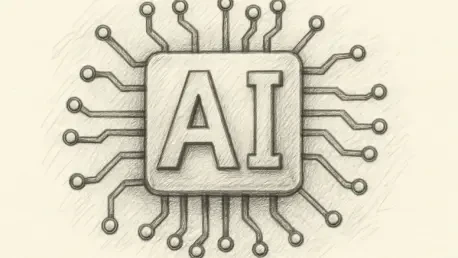In the rapidly advancing realm of artificial intelligence, the concept of “Good AI” has emerged as a powerful narrative. Promoted heavily by tech giants and state actors, this notion envisions AI as inherently positive, capable of driving societal progress and addressing myriad challenges. Nevertheless, this idealistic portrayal often masks underlying ethical concerns and potential risks. This review dissects the core elements, performance metrics, and practical applications of AI, offering insights into the debate surrounding this pervasive technology and its trajectory.
The Foundation of AI Technology
Emerging prominently within the last few decades, AI technology has transformed various aspects of modern life, rooted in principles like machine learning, neural networks, and data analytics. These mechanisms enable AI systems to simulate human cognitive functions, processing vast datasets to produce intelligent outputs. The importance of AI within the broader technological landscape cannot be overstated, as it accelerates innovations across sectors by offering enhanced efficiency and problem-solving capabilities.
Core Elements of AI: Machine Learning and Data Processing
Algorithms at the Core
Machine learning stands as the cornerstone of AI technology, employing sophisticated algorithms to identify patterns and make predictions. By continually learning from data, these algorithms improve their accuracy and decision-making abilities. This dynamic feature is critical to AI’s effectiveness, allowing it to address complex challenges and deliver personalized user experiences.
Harvesting and Refining Data
Data collection and processing are equally crucial, forming the backbone of AI’s ability to function effectively. The vast amounts of information gathered provide the raw material AI requires to learn and adapt. However, the growing concern surrounding data privacy cannot be ignored, as the extensive access AI systems have to personal information presents significant ethical dilemmas. Effective AI necessitates the integration of secure data protocols, ensuring user trust and system integrity.
Recent Developments in AI
AI technology has seen relentless innovation, with advancements reshaping industries and consumer expectations. Trends such as the integration of AI-driven content generation and enhanced natural language processing have opened new vistas for engagement and application. Simultaneously, shifts in industry focus and consumer behavior underline the need for more ethically conscious AI development, steering away from commercialization alone to embrace societal benefits and responsible usage.
AI in Practice: Real-World Applications
AI’s proliferation across diverse sectors testifies to its transformative potential. Healthcare, finance, and consumer electronics are just a few areas extensively leveraging AI’s capabilities. For instance, AI-powered diagnostic tools have revolutionized medical imaging, while financial institutions use AI to enhance fraud detection. Additionally, smart home technologies employing virtual assistants exemplify consumer applications that simplify daily routines while posing questions around user privacy and data security.
The Challenges Facing AI
Despite rapid advancements, AI technology encounters significant obstacles hindering its adoption and performance. Technical challenges, such as biases in training data and limitations in algorithmic transparency, complicate AI’s deployment in sensitive contexts. Moreover, regulatory frameworks struggle to keep pace with AI’s evolution, raising questions about accountability, safety, and ethical oversight. Efforts to address these limitations include continuous research and dialogue aimed at developing clearer guidelines and more robust AI systems.
Future Trajectories for AI
As AI continues its widespread integration, future developments promise further breakthroughs. Enhanced autonomy, improved contextual understanding, and greater adaptability are expected to mark the next phase of AI evolution. However, careful consideration of AI’s societal implications remains essential, as its deepening role in daily life necessitates ongoing discourse around ethical use, human collaboration, and the balance between innovation and impact.
A Reflective Verdict on AI
This review highlights AI’s current capabilities, emphasizing its role as a transformative tool with both exquisite advantages and underlying complexities. The “Good AI” myth, while enticing, may overshadow important ethical and practical considerations that the tech industry must address. AI holds immense potential for further advancements, but ensuring it genuinely benefits society requires vigilance, inclusivity, and responsibility in its continued development. Ultimately, the evolution of AI calls for a collaborative approach that shares its rewards more equitably across society.









